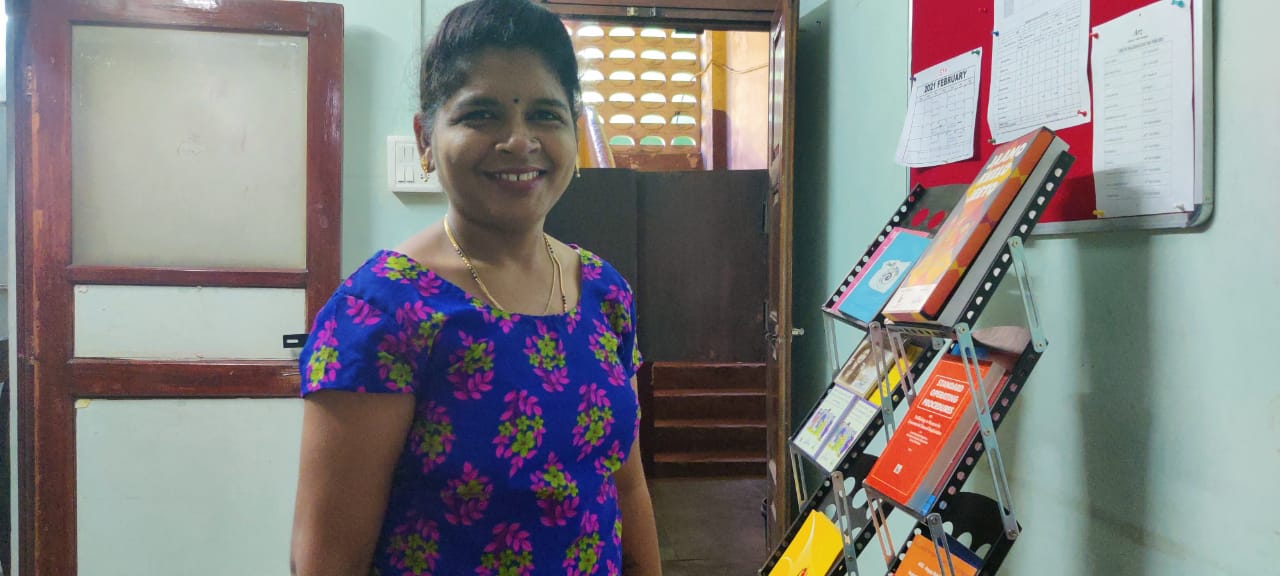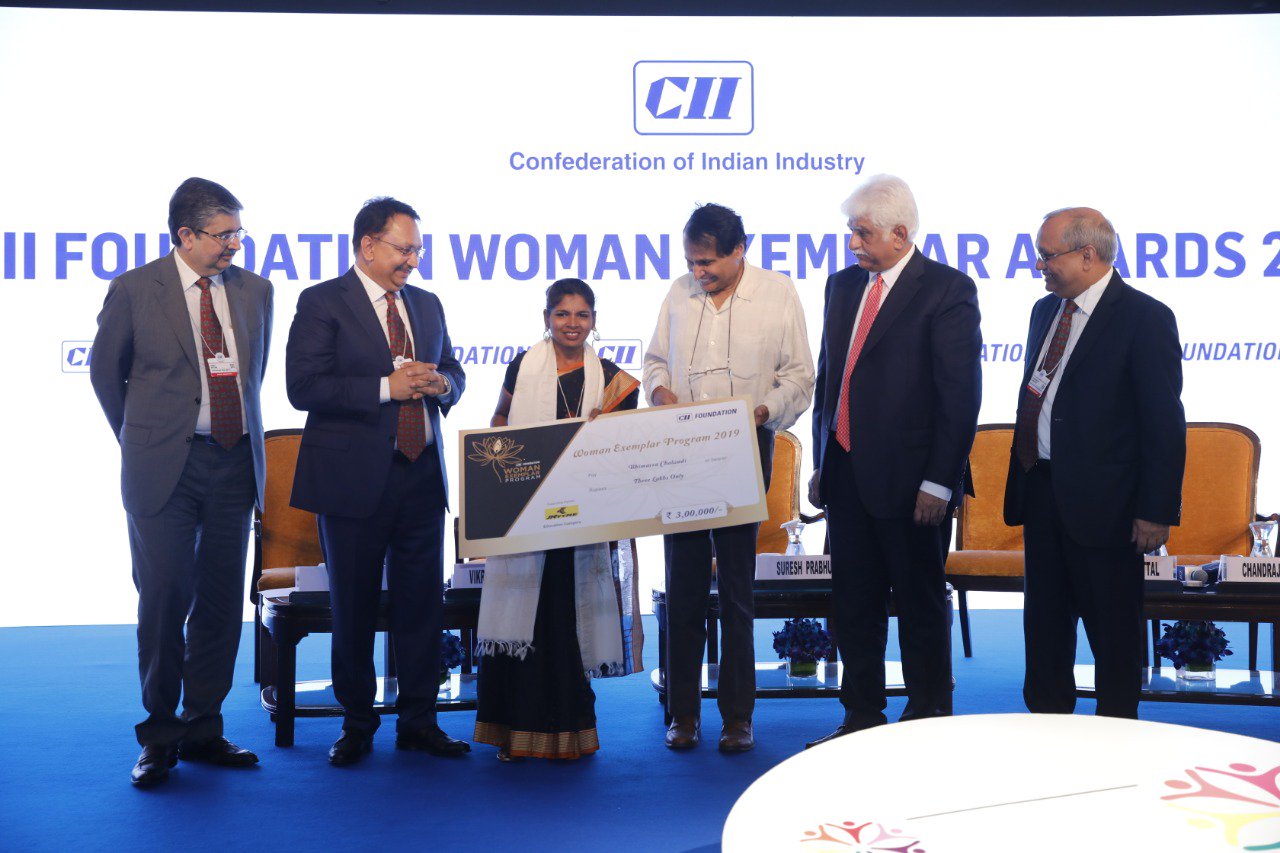Few define the words ‘strength’ and ‘resilience’ the way Bhimavva Chalwadi does. Today, the 35-year-old is a confident woman, who has helped hundreds of women escape harrowing circumstances to be able to stand on their own feet. But 20 years ago she believed this day would never arrive.
Growing up in the slums of Vasco, Goa, with an alcoholic father, a mother who single-handedly provided for her family on a ragpicker’s salary, and five sisters. At the age of 15, Bhima was “dedicated” as a devadasi—young girls who are “married” to an idol, deity, or temple, and a common eventuality for them is sex trade and exploitation—by her parents.
“I spent most of my childhood at home — never stepped out to go to work, or to school. I’d take care of my sisters. My father was a labourer, and a heavy drinker, who didn’t contribute at home. We survived on my mother’s earnings. As I neared my teenage years, people began taunting my mother by saying that she had no sons and much to worry about. We didn’t have any man to care for us, so everyone began suggesting that my mother dedicate me as a devadasi,” she tells The Better India. As a young girl, Bhima would overhear these conversations, with no idea of what that would truly entail, and without any power to stand up and protest.

Beyond a tourist’s Goa
After three to four months, Bhima was taken to Baina, which at the time was a famous red-light area in Vasco. A report stated that the area had a population of about 6,700 at its peak, which included bar owners, gharwallis, small-time hawkers, contract labourers, and sex workers. Most of these women were from Karnataka, Andhra Pradesh, Tamil Nadu and Kerala.
“I tried to run away two or three times,” Bhima recalls. “They would catch me and bring me back, and would complain to my mother, who would often worry aloud that if I continued my ‘shenanigans’, who would care for my sisters?” For about two years, Bhima stayed at the brothel.
In 2003, the Crime Branch conducted a raid in the area with NGO Anyay Rahit Zindagi (Arz), and Bhima was one of the girls that were rescued. She was brought to a government correction home. The sense of confinement that had followed Bhima her entire life caught up with her here as well, and she would often find herself angry at the counsellors. “You (the NGO workers) are asking me to leave the dhanda, but who will take care of my sisters if I do? Will you? Will you take care of my house instead? And if I leave, who will give me a job? Will you?” she would often ask the speechless counsellors these poignant questions.
With no education and a troubled past, Bhima’s avenues for employment were few. “I’d never been to school or learned anything. So what could I even do? Yeh log toh aise hi bolte hai (These people don’t mean what they say), I would think,” Bhima says.
When she was released from the government home, NGO workers took her to Arz’s office, and offered her a job. The organisation was providing tuition classes to children in the local community, who would otherwise remain unengaged. Bhima began working with the NGO to teach arts and crafts to the kids, and met many young women who had similar stories. Soon, she began enjoying her time. But one thought remained with her.
“I’d managed to escape my past, but who would save them? I didn’t want little girls who were being subject to the trade to be resigned to the future I once had,” she says.
From here, she began working to rescue and rehabilitate young women who were being forced into sex work in the area. She formed a team with devadasis, and together they worked to identify girls who were being forced into sex work. They educated them and their family members on the repercussions of the same. So far, she has saved around 800 girls from being subjected to child sexual abuse. Most of these girls, once they regained their confidence and agency, moved on to work in various professions.
One aspect of saving young women from Baina was that Bhima had to return to the same place where she was subject to years of trauma. “It was hard,” she admits. “The pimps, ex-clients, and many others would taunt me. But I clung to the relief that at least one girl could be saved, and had the chance to lead a better life.”
In 2004, half of Baina was demolished as per High Court orders by the government. The operation took down a massive number of cubicles and even residential rooms, the latter was being used by prostituted women and those not connected with sex work as shelter. A report by Arz says around 750 such rooms were demolished, and approximately 3,000 people were affected. Thousands of families were left without shelter, and were subject to a massive food and healthcare crisis.

‘A surreal reminder’
Many girls were left without a home and a source of income, along with a question of what they would do next. Bhima took a few girls to Arun Pandey, director, Arz and after a few months of deliberation, they started a laundry service. Bhima spent the next few years working to mobilise young girls who wanted to start afresh. In 2012, she became the supervisor at the laundry service, Swift Wash. So far, she has helped 480 women gain employment through this venture.
One woman, Shobha (38), has worked at the laundry for 13 years. “My husband is an alcoholic, and I have two children. It was hard to care for them before joining the laundry service. After joining, things became better — our healthcare needs, the education of our children, and other such aspects are all taken care of,” she tells The Better India.
The women share a strong sense of respect for and camaraderie with Bhima. “I go to Bhima didi for everything. She’s patient, and coaches me through any difficulty I might have. I am a bit overweight and couldn’t even walk before I joined Swift Wash. People would often tell me I’d never be able to work. But Bhima didi always believed in me. Sometimes, she would scold me and push me to work harder,” Shobha adds.
Another such woman is Laxmi (49). “I’ve worked here for the last six years. Bhima helped us learn everything — how to work the machine, how to iron clothes and even how to use computers. I have two kids, and ensuring their survival was not easy. Things eased when I joined the laundry service,” she says.
In 2019, Bhima was recognised for her efforts and given the CII Woman Exemplar Award for her social work. “I couldn’t believe it, and I couldn’t stop crying,” she laughs. “There were over 200 women nominated for that award, and I couldn’t believe they chose me. I was never educated, and had never known a world beyond Vasco. But it was a surreal reminder of how far I had come. I felt respected and that I’d actually made a difference. It was a reminder that if I could move forward, so could other girls who currently felt like they had no way out.”
Bhima has a seven-year-old boy about whom she speaks very fondly and says, “My only aim is to educate him well, but also make sure he is a good person. Whatever else he wants to do is up to him, I will support him regardless.”
Edited by Yoshita Rao
No comments:
Post a Comment